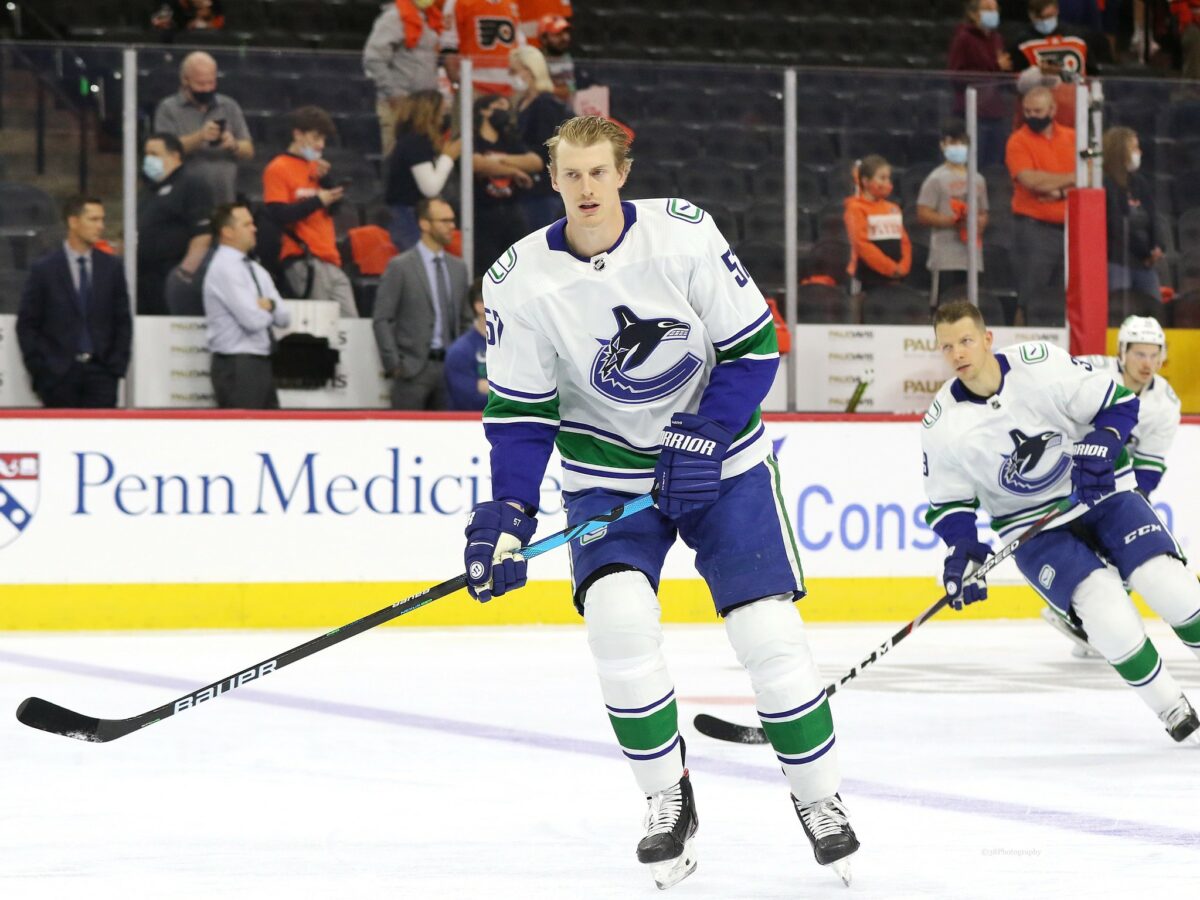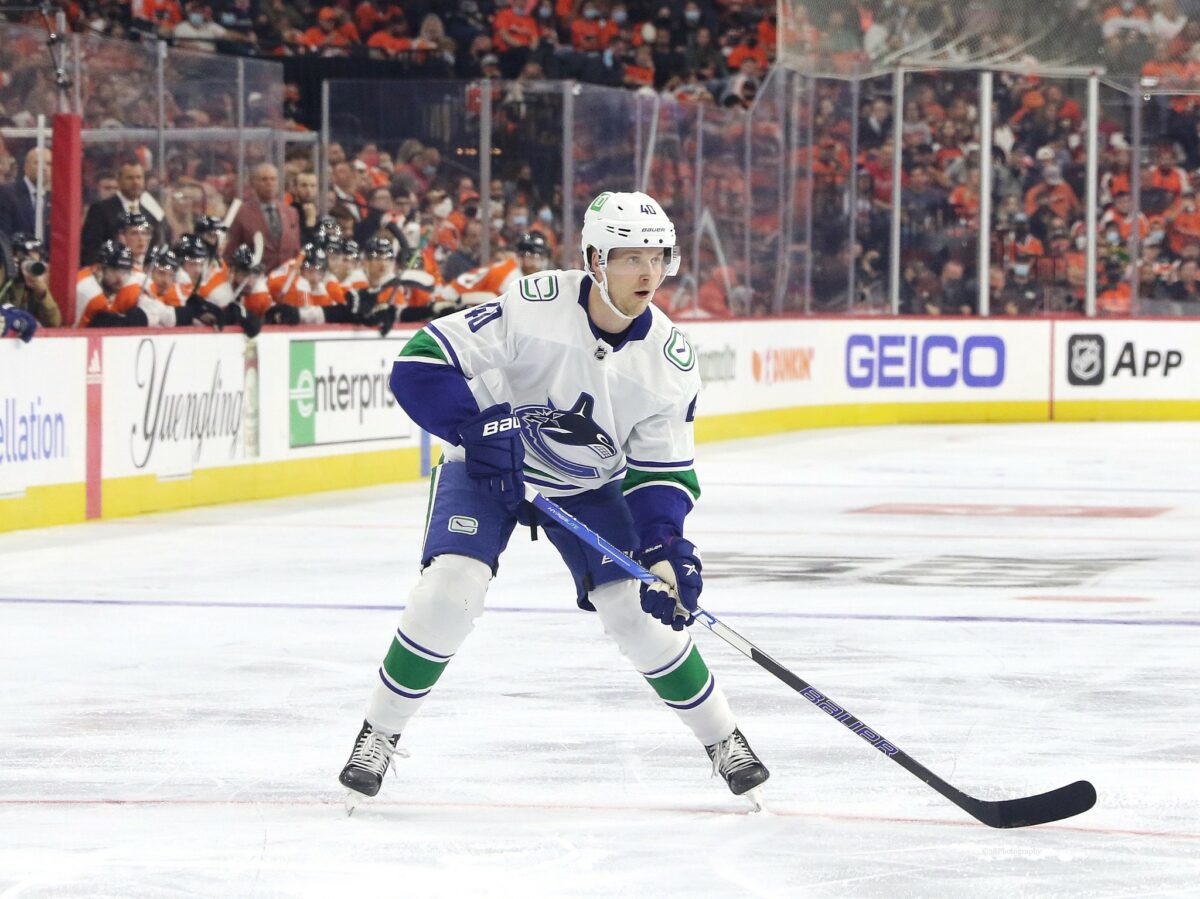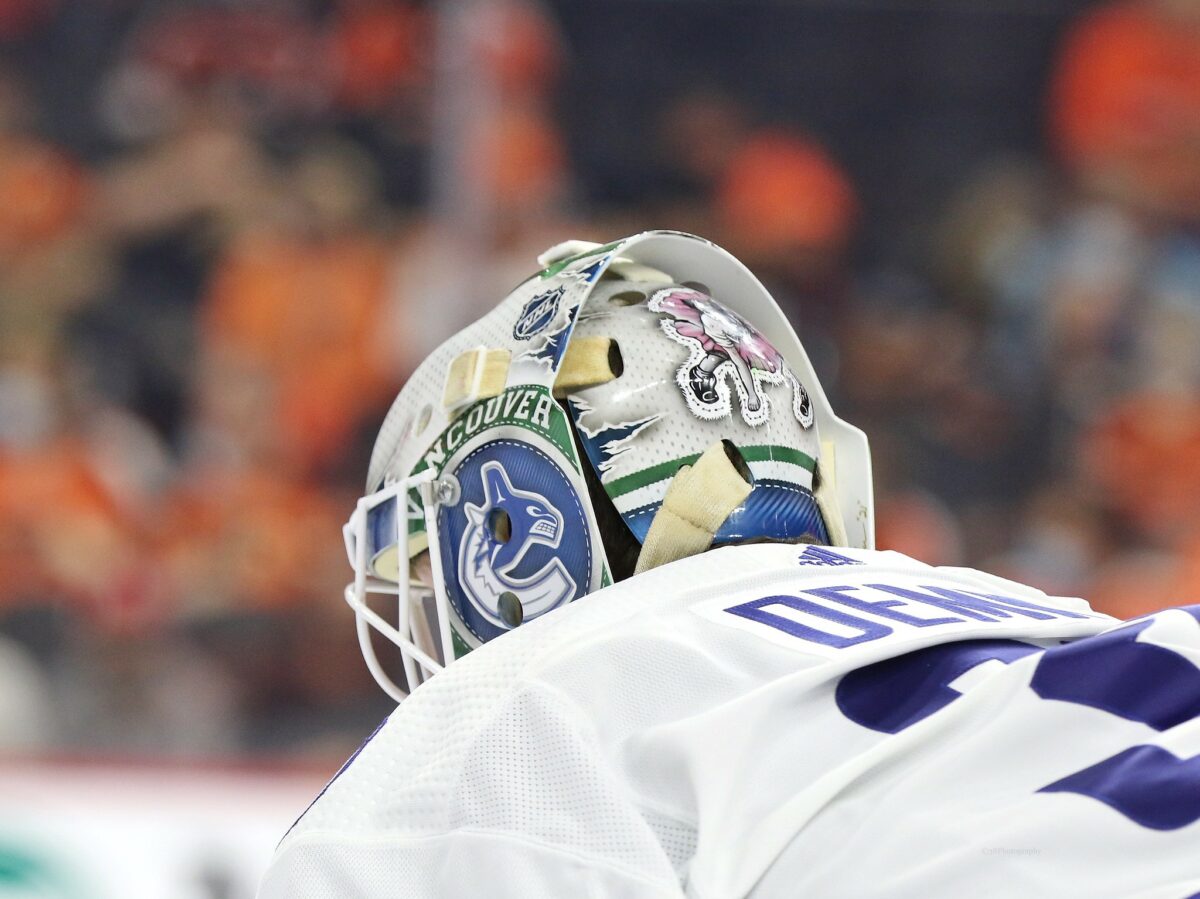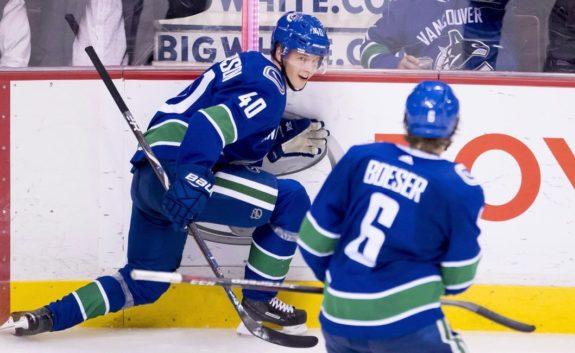The Vancouver Canucks’ recent changes have brought with them a nice little wave of success. The team, for the first time this season, has won four games in a row under new coach Bruce Boudreau. However, is the coach the only reason the team is riding this recent wave of success?
He’s definitely a welcome factor for letting his players “stretch their legs a little,” so to speak. Boudreau has encouraged his players to demonstrate their full skill sets with new line combos and plays. However wonderful that might be, we believe this honeymoon period will likely soon wear off once Canuck opponents review the videos of these last four games and adjust their own playbooks accordingly.
We also believe that, without some significant changes soon, this team might fall back into the swoon that’s been so characteristic of its lack of success during the season prior to Boudreau’s arrival.
Related: Top 3 All-Time Vancouver Canucks Goalies
If the Canucks are to become a winning team once again, the road ahead is long and the task daunting, but we believe it’s doable. In this post, we’ll share what we believe are three issues the Canucks must resolve quickly if the team is to truly turn this season around. [I want to thank G. Miller for working with me on this post and sharing his more-extensive knowledge of how hockey is played at the ice level than my own.]
Problem One: The Canucks Are Chasing the Puck Instead of Taking the Man
For all their quickness and tenacity, the Canucks are not a very big team; nor do they consistently play big. They rarely finish checks, which was especially true recently against the Winnipeg Jets. Furthermore, they seem to have few hard hitters who make opponents wince or hesitate before heading into the corner, other than perhaps Tyler Meyers.

In their recent game against the Jets, although the Canucks won the game, Winnipeg dominated them physically and with their speed. As a result, the Canucks were caught many times looking at or chasing the puck instead of taking the man carrying the puck. For example, almost every time Kyle Connors had the puck he was able to dippsy-doodle through several Canucks’ skaters because he had them mesmerized.
Watching the Canucks on television, fans can easily see that the team relies more upon putting their sticks in the opponents’ way rather than their bodies. Potential checks are rarely finished.
Related: Biggest Canucks’ Trade Deadline Moves of the Decade
We get it. It might seem like a no-brainer to finish a check; however, when a player commits to checking a puck-carrying opponent, a number of questions immediately enter his mind. Specifically, a lot of things might go WRONG if they finish a check!
For example: “If I commit, can I finish this check? If so, will I still be able to find my assigned opponent and remain pertinent to the play? Once I commit to finishing my check, will my teammates be able to cover for me and contain the other team’s players while I get back into the play?” There’s much to consider in that split second when deciding whether to commit one’s body to finish a check or not.

Watching the Canucks play, their current mindset seems programmed to anticipate a worst-case scenario. As a result, checks remain unfinished. Against Winnipeg and Boston, a Canucks’ player who just released a pass was, more often than not, still leveled by an opponent finishing a check. Those checks were often visibly punishing.
That raises a concern: by not finishing checks, are the Canucks revealing a lack of faith in the abilities of their teammates to cover for them? Really, no player wants the blame for an ensuing odd-man rush or goal-against by taking himself out of the play – even by finishing a body check. Yet neither Boston nor Winnipeg players showed hesitation to do the same.
Related: All-Decade NHL Draft – 2010 to 2019
The Bruins and the Jets players made the Canucks pay every time they touched the puck; something which Boudreau is pushing for with his new team. In fact, the Bruins’ and Jets’ players showed clear faith in their teammates’ abilities to handle the ensuing situation without them in the immediate play. At the same time, they demonstrated faith in their own ability to hustle back into the play.
NHL hockey is a game of confidence in one’s own abilities and the capabilities of one’s teammates. Too much losing in the past has clearly sown doubt into the Canucks’ minds.
Boudreau has already done some work in this area. In fact, during the team’s most recent game against the Carolina Hurricanes, we saw more Canucks’ checks being finished. That’s a good sign that the team’s confidence is turning in the right direction.
Problem Two: The Canucks Play Reactively and Not Proactively
During their most recent game against the Hurricanes, the Canucks seemed to react to the play rather than dictate it. It wasn’t that the team didn’t react well and didn’t for the most part prevent the Hurricanes from scoring; however, to our eyes, the team remains too reactive to opponents’ pace and style of play. They don’t push other teams hard enough to take them off of their game plan and to dictate their own.
This tendency is most obvious at the very end of periods, when the Canucks seem to be playing almost short-handed, even when they’re not. They collapse into a defensive shell, seeming to wait for the clock to expire and hope they aren’t scored upon before the end of the period. Again and again Thatcher Demko is tested as the seconds wind down.

That is not what their head coach expects nor wants. As Boudreau’s noted, the game is about pressure. He has a clue which way the “ice should be tilted,” and that isn’t towards his own goalie Demko.
As Boudreau was quoted recently, “My philosophy, in a nutshell, is why do we let teams in our zone and let them dump the puck in where we have to play great defence to get it out?”
You may also like:
- Canucks Draft Misses Since 2015
- Canucks’ Top 15 Prospects for 2024-25 Season
- Daniel Sprong: What to Expect From Canucks’ Newest Signing
- Vancouver Canucks Sign Daniel Sprong to 1-Year Deal
- 5 NHL Teams That Improved in Free Agency
Boudreau added, “Why can’t we stop them in their zone? And if we don’t get them there, then the neutral zone, and in the third case, in our zone.” (from “Canucks new bench boss Boudreau pushes pressure over passive prevention,” Ben Kuzma, The Province, 08/12/21).
There’s no doubt that increased confidence would encourage increased proactivity. As we noted, we saw that a bit more against the Hurricanes than against the Bruins or the Jets. That aspect can grow, we believe.
Problem Three: The Canucks Haven’t Yet Found Their Identity
Perhaps the team’s biggest problem is deciding exactly what kind of a team they’re going to be and become. Currently, the team seems to opt for cute rather than tough. They overpass rather than seek direct scoring opportunities. They are freewheeling rather than pushy.

While a freewheeling Canucks’ offense is fun to watch, their over-passing seems to put them in situations where they miss scoring chances and make them prone to turnovers. That, from our perspective, needs to change, too.
The Canucks either need to get bigger or to play bigger. Against the Jets, for example, the Canucks’ lack of size was obvious. For as tenacious as the team is, they seemed to be getting ground down. At times against the Jets, the team looked like Hobbits against Orcs.
The Canucks need to find some bigger, tougher bodies that would lay a beating on anyone who’d think of touching either Elias Pettersson, Nils Hoglander, or Quinn Hughes.
Thanks to Thatcher Demko
Fortunately for the Canucks, they have Demko. He wins games for them by himself. However, can Canucks’ fans even begin to imagine what might happen with this team if it could begin playing with confidence and swagger in front of their goalie?
Related: The Vancouver Canucks’ Top Three Defensemen of All-Time
That’s the Canucks’ team that fans are waiting for.
